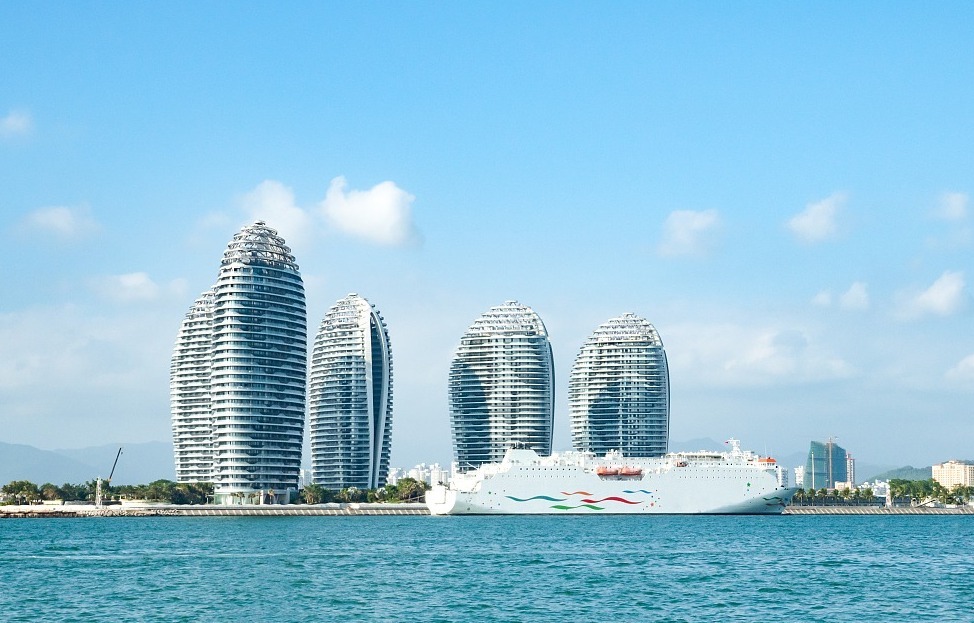

- 简体中文
- English
Release time: 2021-06-23 16:27 Source: China Daily
 A view of Sanya Bay in Hainan province. [Photo provided to chinadaily.com.cn]
A view of Sanya Bay in Hainan province. [Photo provided to chinadaily.com.cn]
Governor: Greater efforts will be made in registration, identifying risks, monitoring
A range of measures are being taken to better implement the Hainan Free Trade Port Law and foster a sounder business environment in an effort to develop a globally influential free trade port in Hainan province, officials and experts said.
Steps will be taken in investment liberalization and facilitation when putting the law into force, and a simpler investment approval mechanism will be fully rolled out, Wang Chaoying, a member of the Standing Committee of the National People's Congress, said at a news conference on Monday.
Feng Fei, governor of Hainan province, said that the Hainan Free Trade Port Law will help to bolster the confidence of businesses, and foreign investors in particular, to have longer-term plans for their investments in Hainan.
He said that what businesses and investors care about most is policy stability and consistency, and the new law will help anchor market expectations and foster a world-class, market-oriented business climate governed by a sound legal framework.
Feng said the port's short negative list for foreign investors will bring greater investment opportunities. The port will fully open its market to investors, except for areas that may relate to national security, social stability, key aspects of environmental protection and key national interests, while foreign investors will be eligible to enjoy the same treatment as their domestic counterparts.
Meanwhile, greater efforts will be made to reduce risks, Feng said, adding that there will be zero tolerance of any act that takes advantage of the Hainan Free Trade Port as a "tax haven".
He said that since the overall plan for the construction of the free trade port and competent policy support was announced last year, the number of market players entering Hainan has surged.
"We will make solid preparations to guard against tax risks and never allow any act that may use the port as a 'tax haven'," he said. Specifically, efforts will be made in business registration, identifying risks and regular oversight.
Financial risks will be strictly forestalled and defused, Feng said. As the port seeks to attract and leverage more global capital and grow in terms of financial innovation, there will be increasing pressure on controlling financial risks.
He said that a special group for guarding against financial risks has been set up by the provincial government. Strong measures will be taken against illegal fundraising and forestalling regional and systemic financial risks.
The provincial government has also made arrangements to guard against risks in the real estate sector, Feng said.
On June 10, China passed a law on the Hainan Free Trade Port, making institutional arrangements for the construction of the Hainan FTP at the national legislative level.
Cui Weijie, deputy director of the Chinese Academy of International Trade and Economic Cooperation, said the Hainan Free Trade Port Law has shown the country's firm determination to build a free trade port in Hainan with the highest level of openness, making institutional efforts for building a high-quality FTP at the national legislative level.
"It is conducive to not only forming a system of governance with clearly defined duties and obligations and administration in line with the law, but also further stimulating the vitality of market players," Cui added.
By ZHANG YUE/OUYANG SHIJIA






